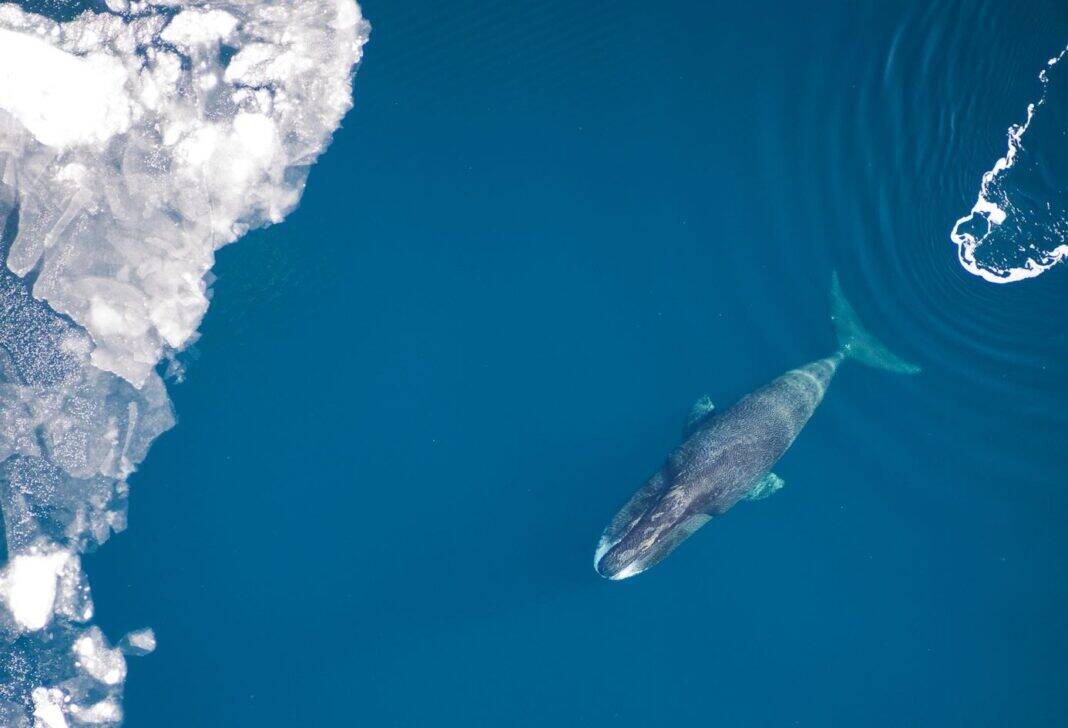A new study has found that the threat to Bowhead Whales from climate change is severe and will lead to their habitat contracting by 75%.
The study was conducted by an international team of researchers led by scientists from the University of Adelaide and the University of Copenhagen.
The team looked at 11,700 years of bowhead whale life in the Arctic regions. They found that the loss of Arctic sea ice due to climate change will have a significant impact on the whales’ habitat, reducing it by 75%. The team also found that the few suitable patches of bowhead habitat that will remain by 2100 will lie outside its current distribution, making conservation policies even more difficult.
According to the study’s lead author, Nicholas Freymueller from the University of Adelaide’s Environment Institute and the University of Copenhagen’s Globe Institute:
“Bowhead whales have preferred to forage amongst sea ice for many millennia. However, Arctic sea ice has declined significantly in recent decades, and this is set to accelerate in coming decades, causing habitats where bowhead whales currently congregate in large numbers to be lost.”
While the study’s senior author, Associate Professor Damien Fordham from the University of Adelaide’s Environment Institute added:
“By using ecological models and paleo-archives to reconstruct pre-whaling distributions of bowhead whales, we were able to develop a much stronger understanding of the habitat preferences of this species that was nearly hunted to extinction. This gives us improved confidence in our projections of habitat loss.”
Also commenting on the study, Professor Eline Lorenzen from the University of Copenhagen’s Globe Institute said:
“By identifying the extent and location of bowhead whale habitat that is likely to be lost in coming decades, our projections provide vital information to guide future management efforts of this emblematic species.”

